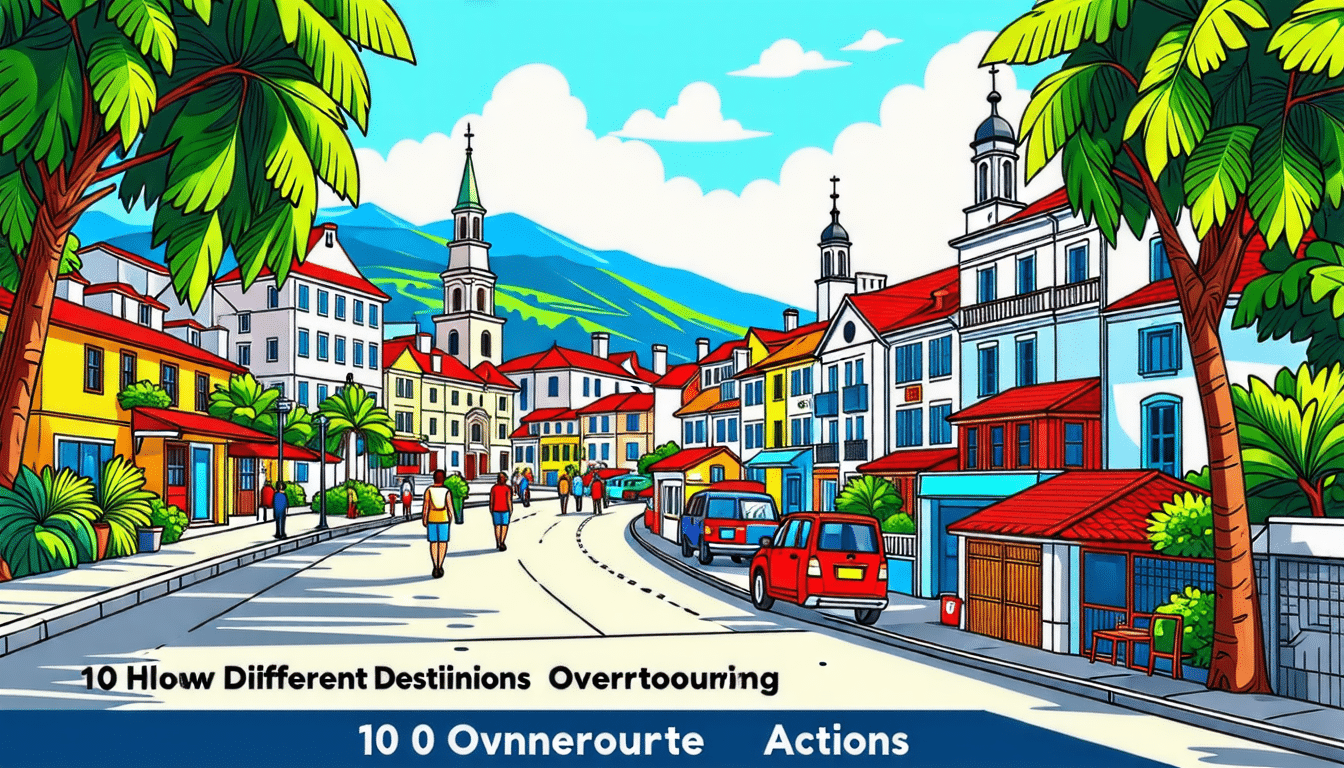As overtourism threatens the beauty and health of our favorite destinations, various corners of the planet are taking creative steps to preserve their uniqueness while welcoming visitors. Here is an overview of ten bold initiatives launched around the world to combat this phenomenon 👀.
Regulation of short-term rentals in Dubrovnik
The charming Croatian city of Dubrovnik has decided to put a stop to the explosion of Airbnb-style rentals. For what ? To reduce nuisance and protect its housing stock, thus allowing local residents to benefit from long-term housing 🏠. It also helps reduce the continuous flow of tourists that transforms neighborhoods into areas dedicated exclusively to tourism.
Limiting the size of tourist groups in Venice
The legendary Venice has opted for a strict approach: limiting the size of tourist groups to 25 people and requiring that guides be certified. Please note, this regulation applies to its historic center and also to the small surrounding islands, such as Murano and Burano, thus strengthening the preservation of its incredibly rich heritage 🚣.
Increase in entry fees to Greece
The Acropolis of Athens is seeing a significant increase in the entrance fee. This measure aims to discourage overtourism by increasing costs, but it also helps finance the maintenance and preservation of the sites. A similar policy impacts other archaeological sites and museums across the country 🏛️.
Various strategies in Spain
In Spain, the actions are as diverse as they are surprising. In Barcelona, a bus route popular among tourists has been removed from Google Maps. Meanwhile, in the Canary Islands, residents are threatening a hunger strike to protest the construction of resorts. These radical measures show the urgency of the situation 🚌.
Strict Restrictions for Airbnbs in New York
The Big Apple is taking big bites out of Airbnb offerings, significantly limiting the number of short-term rentals to protect its residents and local accommodations 🍎.
Costly access to the Galapagos to preserve biodiversity
To protect its unique ecosystem, access to the Galapagos archipelago is now more expensive. These financial measures aim to limit the number of tourists while financing conservation projects 🐢.
Access limitations to Mount Fuji and geisha districts in Japan
Japan is taking steps to reduce tourist pressure on iconic sites like Mount Fuji and traditional geisha districts. This includes visitor gauges, maintenance fees and time restrictions 🗻.
Imposition of tourist quotas in Bali?
Faced with a tourism boom, Bali is considering imposing quotas to regulate the number of its visitors and preserve its paradise island 🌴.
Mandatory guidance for treks in Nepal
To increase safety and reduce environmental impact, Nepal now requires that treks be carried out with an approved guide and a special permit, thus limiting access to natural trails to organized groups 🌍.
Entrance fees increase for Kenya’s national parks
In Kenya, entry to national parks has become more expensive, a dual strategy aimed at reducing visitor numbers while generating revenue for wildlife conservation 🦁.
These initiatives from the four corners of the globe show that the fight against overtourism is a combination of ingenuity and firmness. They illustrate a growing awareness of the importance of preserving destinations for future generations while allowing the local economy to benefit sustainably from tourism 🌐.









